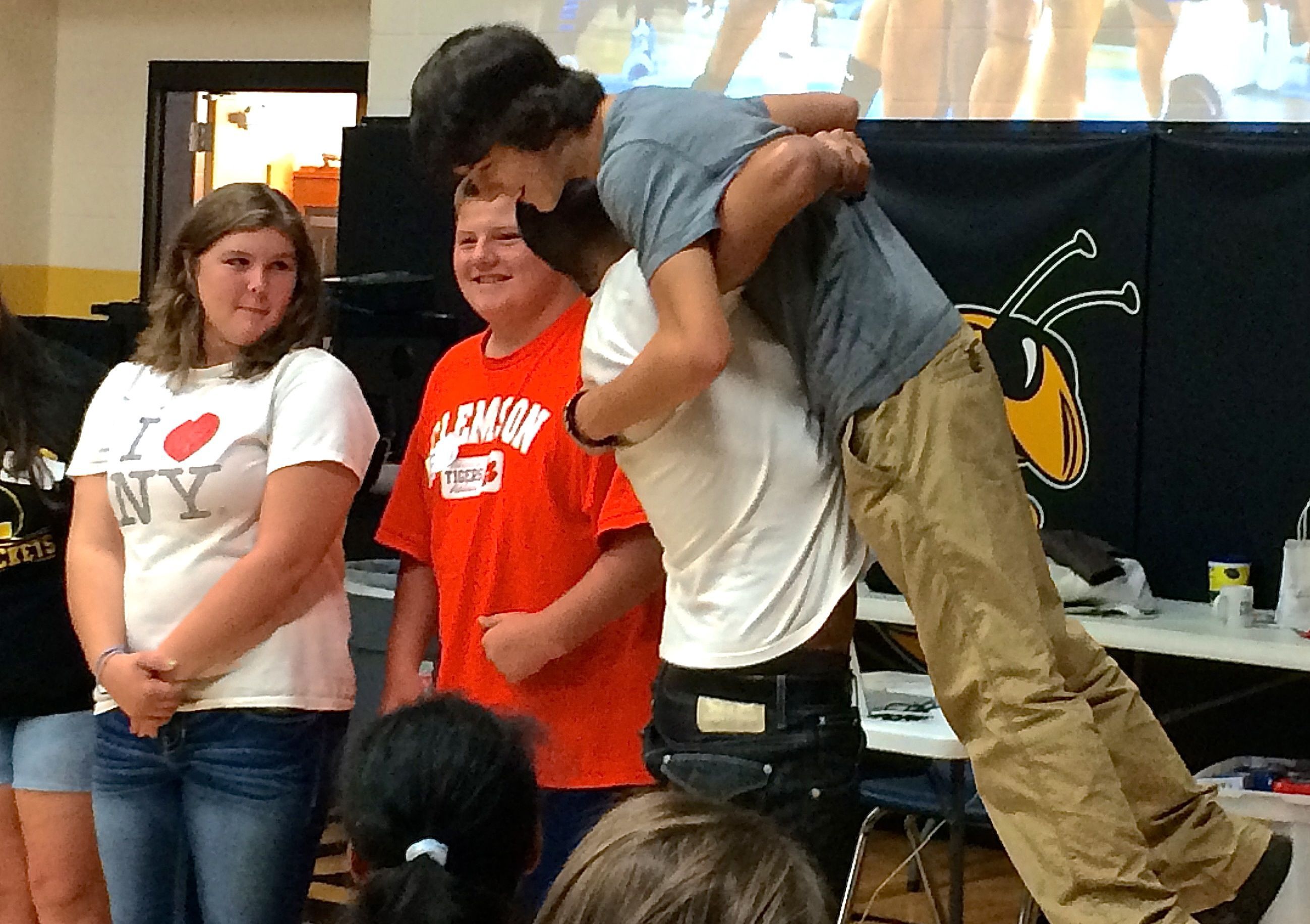Challenging students to stop bullying, change their culture
Published 12:00 am Thursday, October 9, 2014
Corriher-Lipe Middle School is taking steps to “change student culture,” according to Principal Dr. Beverly Pugh.
As Megan Braun, Post intern, said last week in her column, “If you are reading this, you most likely have a bullying story — whether you were the victim, the bully or a witness.”
For many of us, that bullying story occurred during middle school.
“The middle school years are, in my opinion, the most difficult years,” said Pugh, who has been educating middle schoolers for 18 years. “This is a hard age when they’re trying to find out who they are.”
She added that preteens and young teens go through a wide variety of transitions — social, emotional, physical and educational.
“What we do here is critical for the child’s success,” she said.
Middle school education isn’t just about math, science, history and reading — it’s about educating the whole child, Pugh said.
That includes teaching them to interact well with each other.
In September, students at Corriher-Lipe attended Rachel’s Challenge, an anti-bullying assembly at the school.
Rachel’s Challenge is an hour-long presentation that focuses on creating a safe learning environment by encouraging students to treat each other with kindness and respect.
“It was so personal,” Pugh said, adding that she’s already seeing changes in individual students.
“The counselors are saying they’re really seeing a difference,” she added.
Friends of Rachel is an ongoing effort to curb bullying in the school. The club meets throughout the school year during lunch.
Last week, 85 seventh- and eighth-graders went one step further, participating in Chain Reaction, an offshoot of Rachel’s Challenge. Chain Reaction is a workshop focused on breaking down walls between students, finding common ground and fostering unlikely friendships.
The students, who were chosen from the school’s Mix it Up Council, played games, listened to speakers, participated in hands-on activities and spent time talking in groups.
“I don’t think there’s any other tool out there that I’ve witnessed that helps students understand we’re all on the same playing field,” said Laura Tadlock, who helped bring Rachel’s Challenge to Corriher Lipe. “You don’t realize that until you’re willing to sit down and talk about it.”
“Once we break through the walls of our differences, we see how alike we really are,” Pugh said.
“It showed us how to be bold and how to stand up for ourselves,” said Michael Stanley, a student who attended Chain Reaction.
Sarah Bishop, also a student, said, “a lot of people came out of their shells,” showed who they really were and took off their masks.
Chamya Harris said she hopes to see people “start to treat each other more fairly.”
Bishop added that she learned to show “people who are having a rough time that they aren’t alone.”
Though impactful, Rachel’s Challenge and Chain Reaction are expensive programs.
Chris Boardman was familiar with the program and wanted to see it implemented in the Rowan-Salisbury School System. So he recruited the help of fellow church member Tadlock. The pair worked together to raise money to bring the program to Corriher-Lipe by approaching various churches and civic organizations.
“We just reached out locally to folks we thought would be interested in supporting it,” Tadlock said.
“I could see they were on a mission,” Pugh said. “It’s very much been a group community effort.”
Tadlock said she’s happy they were able to bring Rachel’s Challenge to Corriher-Lipe, and that they want to see it expand to other schools in the future.
I’m excited to see how Corriher-Lipe’s student culture changes and develops over the next few months.
I hope to see new friendships formed and torn relationships repaired as students focus on the chain reaction simple acts of kindness can have.




